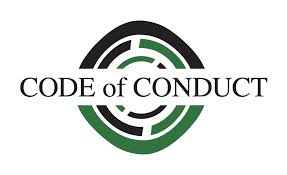The Importance of a Code of Conduct
 Companies and Chief Compliance Officers have taken significant actions to emphasize the importance of a company’s code of conduct.
Companies and Chief Compliance Officers have taken significant actions to emphasize the importance of a company’s code of conduct.
A well-designed code of conduct is a foundation for an effective ethics and compliance program. It is the core from which other policies and procedures are designed. It presents the company’s ethics and compliance program as a unified whole, without irrelevant detours into other topics.
A company has to take two important actions in rolling out its code of conduct.
First, the company’s code of conduct has to be short and straightforward. It should not be a lengthy document; indeed, it should be a short recitation of the company’s values and principles, along with a brief mention of important substantive compliance issues.
Second, the CCO and his/her staff should conduct code of conduct training. It is an important way to communicate the company’s culture of ethics and compliance. It should foster a dialogue among training attendees concerning the company’s code and its culture.
When a company decides to implement a compliance program, or overhaul its existing program, I often advise the company to start with the code of conduct as a bedrock statement of compliance principles. The design of a code of conduct requires careful consideration of the message that a company wants to send to its officers and employees.
 A lengthy, overly prescriptive code of conduct communicates a message of lack of trust – which the company believes it is important to tell its officers and managers exactly what they should do.
A lengthy, overly prescriptive code of conduct communicates a message of lack of trust – which the company believes it is important to tell its officers and managers exactly what they should do.
On the other hand, a general code of conduct that sets out the company’s culture and its ethical principles could have a strong impact on company officers and employees. A focused code of conduct can refer to separate policies (e.g. anti-corruption, antitrust, due diligence, AML) and underscore the importance of compliance with these policies.
A code of conduct is a critical opportunity to establish and communicate a company’s culture. You can always tell a great deal about a company’s culture from its code of conduct – whether it is committed to ethics and values; whether compliance is viewed as a very detail-oriented process; and whether the company values its culture or is focused on compliance with its policies and procedures.
Many companies are reexamining their codes of conduct. That is a good thing and will lead to new solutions and techniques. With the advent of intranet portals in a company and social media, a company can make sure that its code of conduct is concise, accessible and a well-reasoned and persuasive statement of corporate values and expectations.
 A company should reexamine its code every three to five years, especially if the company has experienced any significant changes through growth or acquisition. The process for re-evaluating a company’s code should open the door to a broad discussion focused on the following important topics:
A company should reexamine its code every three to five years, especially if the company has experienced any significant changes through growth or acquisition. The process for re-evaluating a company’s code should open the door to a broad discussion focused on the following important topics:
- What values and principles do we want the company to stand for in the outside world?
- What culture do we want to create in our company?
- How do we build a culture that values integrity and trust?
- What can we do to improve our “speak up” culture?















